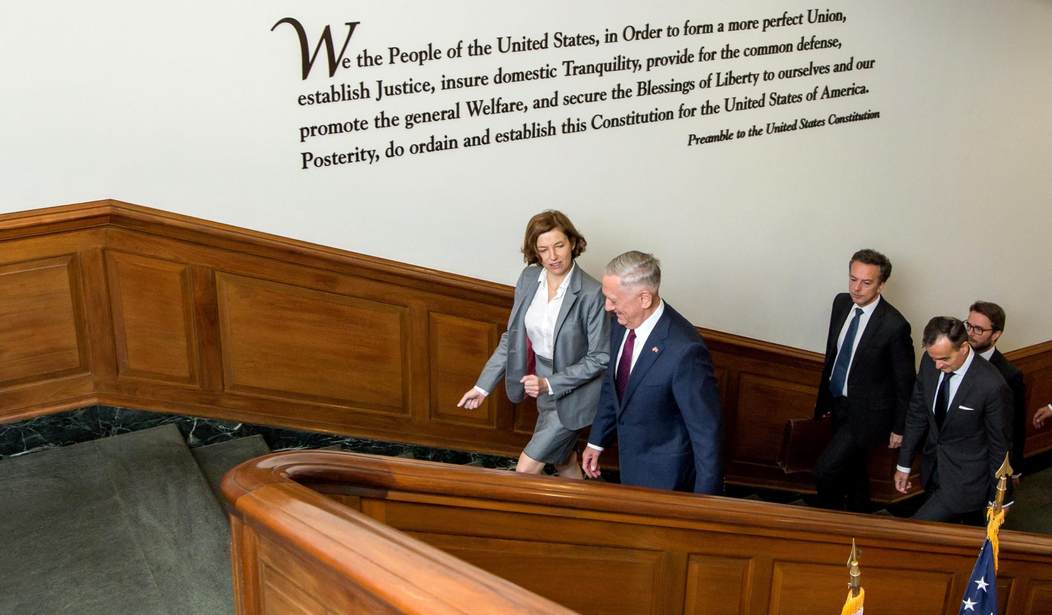WASHINGTON – The U.S. and its allies need the Iran nuclear deal to remain intact, French Minister of the Armed Forces Florence Parly said Friday, warning that “scrapping the deal” could lead to future wars.
“We need the (Joint Comprehensive Plan of Action),” Parly said at the Center for Strategic & International Studies. “Scrapping out would be a gift to Iran’s hardliners and a first step toward future wars, but we should also be extremely serious about the destabilizing ballistic and regional activities.”
Iran agreed to the JCPOA in 2015, promising to significantly scale back nuclear operations in return for the lifting of international oil and banking sanctions. The EU and the UN Security Council’s five permanent members – the U.S., the UK, France, Russia and China – as well as Germany signed the accord with Iran.
Trump opted last week not to certify Iran’s compliance with the deal, a decision that started a 60-day window for Congress to decide whether to reapply sanctions that the Obama administration lifted. Iranian leadership has said it has no plans of restructuring the deal.
European leaders, including French President Emmanuel Macron, reaffirmed their commitment to the Iran deal on Friday at the EU summit. Macron, following a meeting with the UN’s International Atomic Energy Agency Director-General Yukiya Amano, recently urged the IAEA to “ensure strict compliance with the provisions of the agreement in all its dimensions.”
Critics of the JCPOA have claimed that Iran has been openly cheating on the deal, noting that Iranian government officials have barred IAEA inspectors from visiting military sites in Iran.
Parly, during her visit to Washington, met with Defense Secretary James Mattis, National Security Advisor H.R. McMaster and members of Congress. She said that the recent events in Niger would be part of the discussion. Four U.S. Special Forces soldiers were killed earlier this month during an ambush in the West African country. According to background information given at CSIS on Friday, French helicopters were the first military aircraft on the scene following the attack.
Parly was asked if she expects Washington’s involvement with the Group of Five Sahel joint force to change following the attack. In 2014, heads of state for Niger, Mauritania, Mali, Chad and Burkina Faso joined together to form the G5 Sahel, a task force meant to help stabilize and secure the region. The EU in 2017 pledged 50 million euros in financial support for the group.
“It is of the utmost importance for us, and I’m pretty sure Gen. Mattis will be sensitive to it just because he knows that we are strongly committed in the field, in this very demanding fight, and that we need to find support everywhere we can,” Parley said.
Parley also was asked about the European Defense Initiative, a proposal that is meant to allow better coordination between European Union nations. An audience member pointed out that the proposal would exclude U.S. and Turkey and asked if it would serve as an alternative to NATO forces.
Parley dismissed this notion, saying that the European Defense Initiative would not undermine NATO but rather would allow for greater security and cooperation.
“The day Europe invests in its own security, that day, EU contributes even more to NATO,” she said. “The two can be combined.”









Join the conversation as a VIP Member